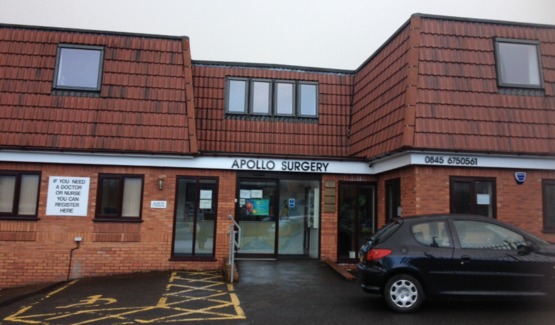There is a wealth of information on NHS Choices about carers and caring. Below are some links into the site that we hope you will find useful.
- Caring for a parent
Watch this video on: caring for a parent at home
- Telling people
Caring responsibilities can make it difficult to maintain friendships or develop new ones. Telling your friends you're a carer is important so they understand and can support you.
- Taking a break
Caring for someone can be a full-time job, but it's essential that you take time out for yourself too. Read our guide to accessing breaks and respite.
- Housing and carers
Do you know your tenancy rights as a carer? Are you aware of all your care at home options? Do you need tips on moving someone around the home?
Finance and Law
-
Help claiming benefits, looking after your bank balance and understanding the legal issues of caring.
- Benefits for carers
Directing carers to the benefits that can help them in their caring role
- Benefits for the person you care for
Advice and information on helping the person you look after get the benefits that they are entitled to
- Death and benefits
How your benefits maybe affected after the death of the person you look after and what happens to their benefits
- Managing someone's legal affairs
Advice for when carers find they have to take over the legal affairs of the person they are looking after
- Other benefits
Advice for carers and the people they are looking after on claiming a whole host of other benefits unrelated to their disability or caring
- Personal and household finance
Advice on keeping a tight rein on household and personal finance for carers
- Social fund
- Tax credits
Information on claiming tax credits and whether you might be eligible
- Benefits for carers
Your guide to care and support

This guide is for people who have care and support needs, their carers and people who are planning for their future care needs.
The green tabs at the top of every page will help you to easily navigate the site. Just hover your cursor over each tab and select the page you want from the dropdown menu.
If you can't find what you're after, try the search box at the top of the page – it covers everything on the wider NHS Choices site, including information on conditions and treatments, and advice to help you live a healthier lifestyle or boost your mental wellbeing.
Get started
Popular topics in this guide include:
- Assessing your care needs
- Planning for your future care needs
- What care services are available locally?
- Care at home (homecare)
- NHS continuing healthcare
- Funding care and support
Advice for carers includes:
- Carer's Allowance
- Benefits for carers
- Caring for a child with complex needs
- Young carers' rights
- Carers Direct helpline service
Below are some commonly asked questions about care and support.
What are care and support services?
Care and support services, also known as social care services, help people who are in need of practical support due to illness, disability, old age or a low income.
Care and support services could include having a personal assistant to help you around the home, structural changes to help you move around or manage in your house, or even an alarm system so that you can call for help if you have a fall.
Social care services are available to everyone, regardless of their background.
However, social care is subject to rules about your needs and ability. Services can also support the families or carers of people who receive social care. Find out more about your rights and entitlements to social care.
How are care and support services funded?
Local authorities (councils) are responsible for providing social care services for those who need them and are eligible for them. After assessing your needs and finances, the local authority may agree to pay for some or all of the care and support you need. These council-funded social care services may be provided by ‘independent providers’ – firms or charities that specialise in providing social care services. Find out more about funding care services.
Even though most people have to fund all or part of their own care and support, local authorities have a duty to assess everyone’s care and support needs, and advise you on relevant local services.
Social care services can take many forms – you can get help from them while you live at home, out and about in the community, or even in a new place of residence such as a care home. To find out more, read choosing care and arranging care.
How can social care help disabled people?
Social care services can help and support people with disabilities to live more independently. Even if you are not eligible for free social care, you may still have a right to receive benefits and other financial help or access to equipment and concessions on transport or the Blue Badge Parking Scheme.
Details on these, together with information on disability rights under the Equality Act and in the workplace, can be found in this guide and on GOV.UK.
Read more about living with a disability with help from social care services.
How can social care help older people?
Most local authorities will have a social care team devoted to older people. These teams can provide support that enables older people to remain living independently in their own home.
The local authority's team for older people will also be able to guide you through the options available if you are no longer able to live at home independently, for instance in sheltered accommodation, extra care housing, or care and nursing homes.
I look after someone. Can social care help me?
If you are looking after an ill, disabled or frail elderly relative or friend, you should recognise yourself as a carer. Carers can get a range of support from social care, and can be vital for helping arrange social care support for the person they care for. There are charities that support particular groups of carers, including sibling carers and young carers.
If you want to talk to someone about how to get support as a carer, call the Carers Direct helpline on 0300 123 1053.
How can social care help my child?
If you're worried about your child's general development or wellbeing and you think they need additional support, you should speak to your child’s GP or teacher first.
If you or your child need more significant support, contact the children’s services team in your local authority for a needs assessment.
This assessment of your child’s needs will be used to determine if they need more specialised support, including any special educational needs your child may have. You should be involved in any decisions about your child, including what help will be provided to meet their needs.
This guide also provides tips for caring for a disabled child and links to further help.
Council help for children
Each local authority will have people dealing specifically with social care for children. Use the GOV.UK website to find your local council and get advice about an assessment for children’s services.
How good are my local authority social services?
If you are receiving care, looking after someone who receives care, or just planning for your future care, it’s worth finding out how well your local authority’s social care services are performing.
You can check how care services in your area are performing against measures in the Adult Social Care Outcomes Framework (ASCOF).
This will let you find out how carers and people receiving local authority funded care and support in your area rate:
- their quality of life
- their satisfaction with care services
- feeling safe
Alongside these are the levels of social services that the local authority offers, such as:
- the number of people receiving direct payments
- the number of permanent admissions to care homes
- delayed transfers of care from hospitals
You can also compare these with national and regional averages, to see whether your local authority is doing well, or could be performing better.

